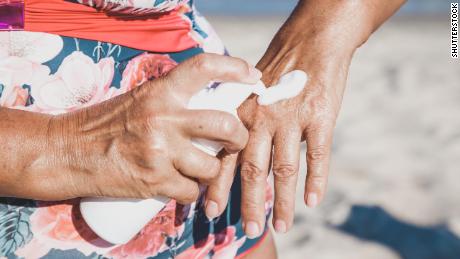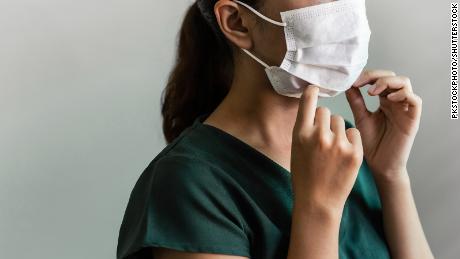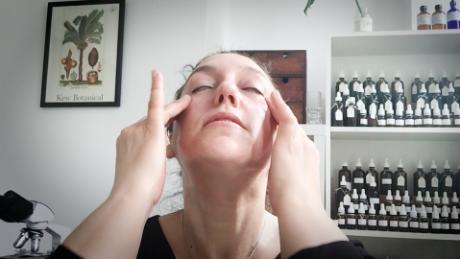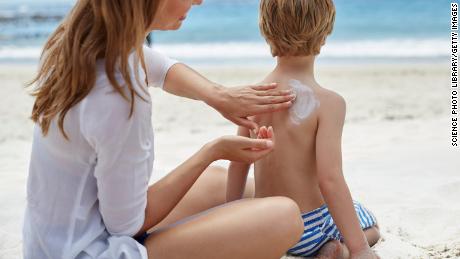How brand-name sunscreens became contaminated with a cancer-causing chemical and what the FDA is doing about it
The companies recently pulled several sunscreens from market shelves after independent testing had found they were contaminated with a cancer-causing chemical called benzene.
CVS Health also stopped selling two of its after-sun care products due to similar findings. But other sunscreens and after-sun cosmetics, which also tested positive for the toxin, remain on the market (the full list is below).
How did brand-name sunscreens become contaminated with benzene? Should you be concerned? And what can you do to protect yourself and your family? We’ve gathered answers to these questions and more.
Which sunscreens were recalled?
All batches, or lots, of these four Neutrogena spray sunscreens and one Aveeno spray were voluntarily recalled this week by parent company Johnson & Johnson (J&J) “out of an abundance of caution”:
- Neutrogena® Beach Defense® aerosol
- Neutrogena® Cool Dry Sport aerosol
- Neutrogena® Invisible Daily™ defense aerosol
- Neutrogena® Ultra Sheer® aerosol
- Aveeno® Protect + Refresh aerosol
CVS also stopped selling CVS Health After Sun Aloe Vera and CVS Health After Sun Aloe Vera Spray a day after the Johnson & Johnson recall was announced.
Mike DeAngelis, senior director of CVS Health’s corporate communications, told CNN the company is “cooperating with Johnson & Johnson’s voluntary recall.”
He said that “CVS products have not been recalled,” but the company has paused sales of the two CVS products, which tested positive for benzene, “out of an abundance of caution.” CVS Health is working with the supplier of the products to “take appropriate additional steps,” he added.
However, one of the CVS products on the list of benzene-contaminated products, After-sun Aloe Vera Moisturizing Gel, “is still for sale,” DeAngelis said.
Why were the sunscreens recalled?
The voluntary recalls and pause in sales came after an independent lab tested 294 samples from 69 brands of sprays, lotions, gels and creams designed to protect the skin from the sun or care for the skin after sun. Of those, 78 samples tested positive for benzene.
Contamination appeared in specific batches of sunscreen, rather than a specific brand, said David Light, CEO and founder of Valisure, the independent lab that ran the tests.
“The finding of benzene in sunscreen was certainly surprising to me as a scientist and a consumer. I’m quite a heavy user of sunscreen myself; I have five kids and we all use sunscreen, so it was rather concerning to find such high levels,” Light said.
“We petitioned the FDA to recall or to request recalls of the products that are 0.1 per million and above,” Light told CNN. “It’s obvious that we shouldn’t be taking that risk, and we just wanted it cleaned up.”
Another spray, Neutrogena’s Cool Dry Sport, and CVS Health’s After-sun Aloe Vera Moisturizing Gel, tested at .01 to 2 parts per million of benzene in some samples.
Aveeno’s Protect + Refresh aerosol, which was the fifth sunscreen recalled by J&J, was not tested by Valisure.
“We did not have the chance of acquiring any of the Aveeno sprays, but it certainly sounds like Johnson & Johnson’s own internal testing confirms our overall concern with benzene in the sunscreens,” Light said.
According to J&J, daily exposure to benzene in these sunscreen products “at the levels detected in internal testing would not be expected to cause adverse health consequences.”
Which products were not recalled?
Samples of Eco Formula Sunscreen Lotion SPF 30, Advanced After-Sun Gel by Sun Burst, Sunscreen Lotion SPF 30 by SunBurnt, Sunscreen Lotion SPF 30 by Goodsense, Ultimate Sheer Sunscreen Lotion SPF 70 by TopCare Everyday, and UV Aero Broad-Spectrum Full-Body Sunscreen Spray, SPF 45 by EltaMD all tested for benzene at levels of 2 parts per million or higher.
Samples of three Banana Boat products also contained levels of benzene at those levels: Kids Max Protect & Play Sunscreen C-Spray SPF 100, UltraMist Deep Tanning Dry Oil Continuous Clear Spray SPF 4 and Ultra Sport Clear Sunscreen Spray SPF 100.
To date, CNN was not able to verify that any of these products have been recalled following Valisure’s request to that effect to the FDA.
The Personal Care Products Council, an industry association, said its members were “firmly committed” to providing products with “ingredients that have been thoroughly tested for safety and follow the requirements of the law.”
What is benzene?
At room temperature, benzene is a colorless or light yellow liquid with a sweet odor. Highly flammable, it will float on water, and while it evaporates quickly, it is heavier than air and can sink into low-lying areas, the CDC noted.
Exposure to high levels of benzene in the air can cause death, the ATSDR says, but the impacts of eating foods or drinking liquids containing lower levels of benzene are not known.
“If you spill benzene on your skin, it may cause redness and sores. Benzene in your eyes may cause general irritation and damage to your cornea,” the ATSDR said.
Cigarette smoke and off-gassing from furniture wax, detergents, glue and paint are sources of indoor exposure to benzene, according to the CDC, while outdoor air can be polluted with benzene from “gas stations, motor vehicle exhaust, and industrial emissions.”
How did benzene get into sunscreens?
No one knows for sure how the toxin ended up in sun care products. Benzene was not an ingredient in any of the sunscreens, so experts suspect contamination had to have occurred during the manufacturing process.
“Benzene could be a byproduct of the process of making the chemicals that companies sell to the formulators of personal care products and sunscreens. Or it could be that some of those chemicals break down into benzene, although that seems less likely,” Faber said.
“But it’s very alarming, especially since the FDA does not require companies to test ingredients for contaminants, nor does it require testing for such chemicals at a finished product stage,” he added.
What is the FDA doing?
In response to Valisure’s petition, the FDA told CNN that it “evaluates and assesses the information provided in citizen petitions of this type and, generally, initiates an independent testing and verification process.”
“While the FDA evaluates the citizen petition submitted by Valisure, we will continue to monitor sunscreen manufacturing and marketing to help ensure the availability of safe sunscreens for U.S. consumers,” an FDA spokesperson said.
How can I tell if my sunscreen is contaminated?
Because the contamination was sporadic and likely occurred accidentally, there is no way for consumers to look at a label and choose a product without benzene, Faber said.
“Sadly, consumers are screwed. There’s no way to shop around this problem,” Faber said, adding that consumers can petition for new regulations to more thoroughly test consumer care products for toxins and contaminants.
“People can tell the FDA to require over-the-counter sunscreen product companies to test for contaminants like benzene, and people can tell Congress to pass laws to modernize cosmetics safety laws,” he said.
Valisure has committed to testing additional sun care products as they have space in their lab schedules, and it is encouraging people to send in sunscreens and sun care products they have purchased to be analyzed.
How can I protect my family?
And of course, it’s always a great choice to use common sense practices as well to protect your skin from harmful rays. Wear shorts, shirts, pants and hats to help block dangerous rays and apply safe sunscreens to exposed skin. Wisely choose your time in the sun by avoiding the most intense rays between 10 a.m. and 4 p.m. and seek shade whenever possible.
![]()














